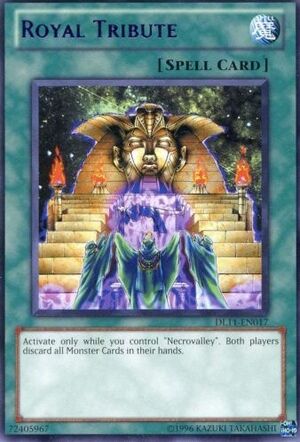Rule n.5, "Opponent's not a noob"
That's important, you must think that your opponent's not a noob to foresee throught everything (more or less).
Example: opponent's first turn, he set's 5 cards and no monster, so you can't guess what kind of deck he is playing. Think, if he's a good player, would he set mindlessly 5 cards that are ALL effect/summon negation? No, so he must have something to negate it, more likely starlight road, so you would lose a card and he could summon a big monster that has a negating-destruction effect.
Rule n.6, "What's he doing?"
As said before, the opponent isn't always a newbie, so if he makes something that looks foolish, well, be prepared to something. For example, I knew that my opponent had mirror force, because he chose that with Pot of Duality, but I attacked no matter what with 3 big monsters that wouldn't have killed him with just one attack each. He of course mirror force'd me, I used Starlight and won. In this case you should have used both rule n.2 and rule n.5, "take your time" and "opponent's not a noob", he has a face-down card and he's attacking me with big monsters he has just summoned, why is he doing that? Then rule n.0, "know your deck perfectly", if you didn't stopped the OTK, could you win the game with cards you have in hand and on field and 1 card you could have draw into? If yes, wait, don't mirror force 'em, if no, hope he's using rule n.4, "like poker", to bluff.
Rule n.7, "Know the rulings"
Yeah, maybe I should have mentioned this before, but they aren't in order of importance (except for rule n.0, of course) and I forgot this. Rulings are a powerful weapon, you can use strange and forgotten ones to stop the opponent, you don't need to ask the judge because that would alarm your opponent and you won't misplay realizing a wrong ruling at the end of the combo making you waste useful resources for nothing.
Rule n.8, "What will happen if..."
I always used this rule, only while playing Fabled I totally forgot that, because the kind of Fabled I was playing wasn't something that used 2/3 cards to combo for half an hour, that one could combo for an hour entire, making it impossible to think about it. Said that, what does this rule means? You need to think about everything that happens after one of your moves.
If I use my Dark Hole now, I won't draw into another, so I must think "Is it really needed to use it now? Is it worth the situation? Can I block opponent's comboes by destroying cards he has on the field right now or can I stop the comboes that will follow with the cards I'll set (maybe against hieratics, if he drew into a REDMD the next turn he could have easily killed me, but by destroying this field now he won't be summoning him)?". Those aren't easy-to-answer questions, but you can apply rule n.2, "take your time", and think easily about that.
This is still not all, I'll add something an other day.







